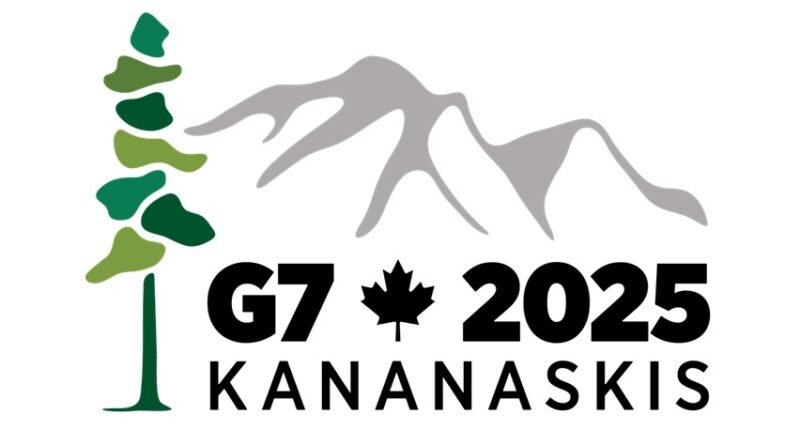G7 Summit 2025: Kananaskis
Introduction: What is the G7 Summit?
The Group of Seven (G7) is a powerful intergovernmental forum comprising the world’s most advanced economies — Canada, France, Germany, Italy, Japan, the United Kingdom, and the United States. The European Union also participates as a “non-enumerated” member. The G7 Summit is an annual gathering where these nations’ heads of state and government meet to deliberate on pressing global issues, shaping multilateral policy on everything from economics and climate change to security and digital transformation.
Read This: Prime Minister Narendra Modi to Attend 51st G7 Summit in Canada Amid Strained India-Canada Relations
G7 Summit 2025: Date and Venue
- Event: 51st G7 Summit
- Dates: June 15–17, 2025
- Location: Kananaskis, Alberta, Canada
Canada, one of the founding members of the G7, is hosting the summit for the 7th time, selecting the picturesque Kananaskis Village, nestled in the Rocky Mountains, as the venue. This serene yet secure setting is ideal for private dialogue and high-level diplomatic engagement.
Theme of G7 Summit 2025: “Building Resilient Democracies in a Fragmented World”
Amid rising geopolitical tensions, digital misinformation, climate disasters, and economic imbalances, the 2025 summit is centered on reinvigorating democratic values and multilateral collaboration. The theme echoes a growing global sentiment toward defending open societies, reinforcing global supply chains, and countering threats posed by authoritarian regimes and technological disruptions.
Participating Members and Leaders (Confirmed)
| Country | Leader |
|---|---|
| Canada | PM Mark J. Carney (Host) |
| France | President Emmanuel Macron |
| Germany | Chancellor Olaf Scholz |
| Italy | PM Giorgia Meloni |
| Japan | PM Fumio Kishida |
| United Kingdom | PM Rishi Sunak |
| United States | President Joe Biden |
| European Union | Presidents Ursula von der Leyen & Charles Michel |
Special Invitees (Expected):
- India – PM Narendra Modi
- Australia – PM Anthony Albanese
- South Korea, Brazil, South Africa, and Ukraine also expected
Key Agenda Items for G7 2025
1. Global Security and Geopolitical Challenges
- Russia-Ukraine War: Ongoing discussions on military aid, sanctions, and post-war reconstruction.
- Middle East Instability: Strategic response to renewed tensions in Gaza and Iran’s influence in the region.
- Indo-Pacific Cooperation: Joint efforts to counter China’s assertiveness in Taiwan, the South China Sea, and global infrastructure projects like the Belt and Road Initiative.
2. Artificial Intelligence and Digital Governance
- Development of an AI Regulatory Framework to prevent misuse, promote transparency, and uphold ethics.
- Combating cyber warfare, deepfakes, and digital propaganda threatening electoral processes and public trust.
3. Climate Crisis and Green Transitions
- Revisiting net-zero targets and national climate plans in line with COP30 expectations.
- Strategies for climate finance, renewable energy investments, and carbon trading among G7 and developing countries.
4. Global Economic Stability and Trade
- Addressing post-pandemic inflation, global debt crises, and interest rate shocks.
- Strengthening supply chain resilience, especially in semiconductors, critical minerals, and pharmaceuticals.
- Reforming global institutions like the IMF and WTO for equitable development.
5. Public Health Systems and Pandemic Preparedness
- Creating a Global Vaccine Equity Pact.
- Strengthening the World Health Organization (WHO) to coordinate faster responses to future pandemics.
India’s Participation: Significance of PM Modi’s Presence
India’s Prime Minister Narendra Modi confirmed his participation following a personal invitation from Canadian PM Mark Carney, despite the backdrop of recent tensions over the Hardeep Singh Nijjar controversy. India’s inclusion reaffirms its global status as:
- The world’s largest democracy
- A key G20 and Global South voice
- A critical partner in Indo-Pacific strategy and technology innovation
India is expected to:
- Advocate for reformed multilateralism
- Seek support for climate adaptation finance
- Promote its Digital Public Infrastructure (DPI) model as a global example
The Carney Factor: Canada’s New Role in Global Diplomacy
New Canadian PM Mark Carney, former Governor of the Bank of England and a global finance veteran, is expected to emphasize:
- Stabilizing the global financial system
- Leading initiatives on climate finance and AI regulation
- Using the summit to reset Canada’s diplomatic ties, including with India
His leadership could reshape Canada’s image on the global stage—from domestic political tumult to becoming a pragmatic bridge-builder among G7 partners.
Expected Outcomes and Global Impact
- Joint G7 Declaration 2025
A comprehensive communiqué is expected, summarizing joint stances on:- Ukraine and security
- Digital transformation
- AI regulation
- Economic recovery
- Climate pledges
- Side Bilateral Meetings
Several anticipated high-level talks:- Modi-Carney: Potential thaw in India-Canada relations
- Biden-Macron: Coordination on NATO, Ukraine
- Sunak-Kishida: Semiconductor security and Indo-Pacific strategies
- Multilateral Announcements
- Launch of “Green Infrastructure Fund” for the Global South
- AI Safety Protocols jointly developed by G7 tech ministries
- Expansion of Partnership for Global Infrastructure and Investment (PGII)
Criticisms and Challenges
Despite its high-profile nature, G7 faces criticism for:
- Lack of representation from developing countries
- Ineffective implementation of past climate and vaccine pledges
- Being seen as a club of wealthy nations unable to reflect 21st-century geopolitical shifts
Analysts argue that greater cooperation with the G20, African Union, and ASEAN may enhance G7’s global legitimacy.
Conclusion: Why G7 2025 Matters
The G7 Summit 2025 comes at a pivotal moment in world history. From wars and climate collapse to digital revolutions and democratic backsliding, the world is grappling with urgent, overlapping crises. G7 leaders must demonstrate not only the political will but also the moral courage to lead with vision, inclusivity, and integrity.
Canada’s stewardship under PM Mark Carney offers an opportunity for bold global action—and the presence of leaders like Narendra Modi, Joe Biden, and Emmanuel Macron ensures that the decisions made in Kananaskis will echo across continents.

